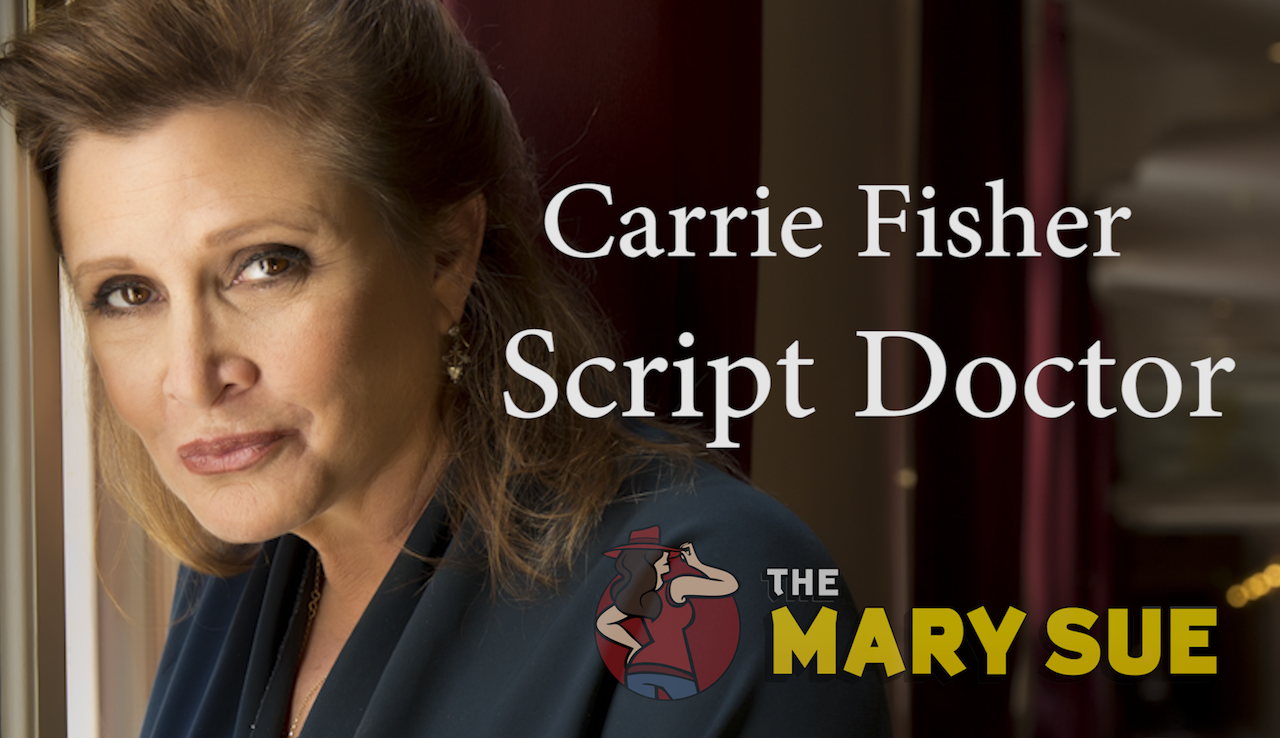Carrie Fisher’s Unsung Legacy as a Script Doctor Extraordinaire

It’s time for another TMS video history lesson, this time about Carrie Fisher’s unsung skills as one of Hollywood’s most notable script doctors! The video above details Fisher’s career history working as a punch-up writer on some of the greatest films of the 90s—as well as a few unsalvageable stinkers. Read the transcript for our video below.
**
Carrie Fisher is still best known for her role as Princess Leia, in spite of the fact that her legacy in Hollywood—both on-screen and behind the scenes—stretches way beyond her Star Wars debut decades ago. Fisher deserves to be remembered, but not necessarily as the gold bikini-wearing sex symbol that will likely pervade her search engine results for decades to come, in spite of her own wish that she’d fought against that outfit. In that spirit, let’s give Carrie Fisher a little more recognition for a very different and very significant role that she took on in the world of film, over and over again: script doctor.
Script doctoring, or script consulting, is a skill that often goes uncredited and unacknowledged in Hollywood. Writers will get hired to polish up an existing screenplay; just like doctors, they diagnose problems and suggest solutions. In the case of script doctoring, that means anything from adding in a few new jokes, to implementing massive structural changes or reworking entire characters and scenes.
Carrie Fisher’s career as a script doctor became the stuff of legend in the 1990s. Fisher was responsible for fixing up Hook in 1991, Sister Act in 1992, Lethal Weapon 3 in 1992 and The Wedding Singer in 1998. In 1992, Entertainment Weekly called Carrie Fisher “one of the most sought after doctors in town”—high praise, and one of the only accolades that Fisher would ever receive in printed form, given that she was not credited by name as a writer for any of the films in which she had a hand.
There are some projects to which Fisher might not have wanted her name attached, however. Fisher has been said to be one of the script doctors on board to fix all three of the Star Wars prequel scripts. Even Fisher’s writing skills and Star Wars savvy must not have been enough to save those projects! Not all patients can be cured, as every doctor knows.
In 2008, Fisher told Newsweek that she hadn’t done script doctoring for a few years, but that it had once been a very lucrative career for her. Nowadays, she says, the process is very different: in order to be considered for script consulting gigs, you have to submit your notes and ideas ahead of time. But then they can keep those notes and not hire you, Fisher points out. She calls it “free work”—“that’s what I always call life-wasting events.”
Take it from Carrie Fisher, young writers: don’t let other people take advantage of you. Own your worth; fight on your own behalf; be your own best advocate. That should be the Carrie Fisher legacy.
—Please make note of The Mary Sue’s general comment policy.—
Do you follow The Mary Sue on Twitter, Facebook, Tumblr, Pinterest, & Google +?
Have a tip we should know? tips@themarysue.com